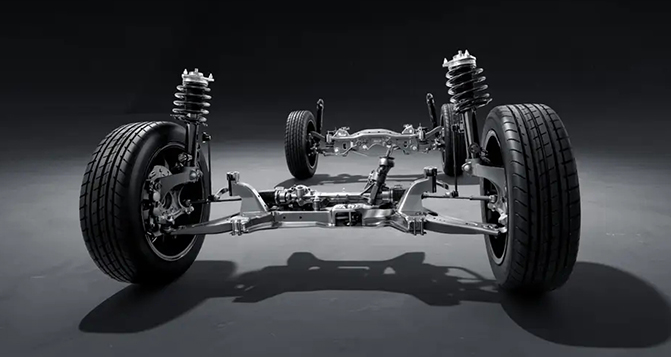5 Hard Core Advantages of Hydraulic Suspension
Safety: Anti roll and emergency braking shorten the braking distance and reduce the risk of accidents.
Stable: Vibration absorption rate exceeds 90%, reducing driving fatigue by 50%.
Efficient: Load is evenly distributed, braking power is increased by 20%, and heavy loads are more stable.
Economy: Extend tire life by 30%, reduce fuel consumption by 5%, and decrease maintenance costs by 40%.
Load bearing: The dynamic load coefficient is small, and the sudden impact bearing capacity is 30% stronger than that of steel plate suspension.

Key comparison: Hydraulic suspension outperforms air suspension
Turbulent road surface: Hydraulic suspension remains calm, while air suspension experiences noticeable bouncing.
Roll control: Hydraulic suspension has almost zero roll, while air suspension has a clear posture.
Emergency braking: Hydraulic suspension stabilizes with one compression, while air suspension bounces continuously.
But hydraulic suspension is not omnipotent
Price: 2-3 times that of air suspension, only suitable for high-frequency heavy loads/complex road conditions (such as mountainous national roads).
Function: Passive, unable to adjust vehicle height.
Maintenance: Regular leak detection and oil change (once every 500000 kilometers) are required, and air suspension is almost maintenance free.
conclusion
High speed standard load transportation: Air suspension offers higher cost-effectiveness.
Heavy load/bumpy/mountainous areas: Hydraulic suspension performance is crushing, but it requires high cost and complex maintenance.

